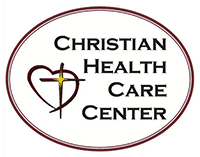Keeping both the brain and body healthy is essential for seniors to maintain a high quality of life. Here are eight tips that can promote your overall well-being:

- Stay mentally active. Engage in activities that challenge the mind, such as puzzles, Sudoku, reading or learning a new skill or language. Consider using digital brain-training apps and games designed to improve memory, problem-solving, and cognitive skills. Staying mentally active can help prevent cognitive decline.
- Socialize regularly. Maintain social connections by spending time with friends and family, or by participating in group activities. Social engagement can boost mental and emotional well-being.
- Physical exercise. Regular physical activity not only benefits the body but also the brain. Exercise increases blood flow to the brain and can improve cognitive function. Activities like walking, swimming or gentle yoga are excellent choices. Incorporate strength training exercises into your fitness routine to help maintain bone density and muscle mass. This can reduce the risk of falls and fractures later in life.
- Healthy diet. Consume a balanced diet rich in fruits, vegetables, whole grains, lean proteins and healthy fats. Foods rich in antioxidants, such as berries and leafy greens, can support brain health.
- Stay hydrated. Dehydration can affect cognitive function. Ensure you’re drinking enough water throughout the day, even if you don’t feel thirsty. Click this link to learn how much water a senior citizen should drink each day: https://www.ncoa.org/article/how-to-stay-hydrated-for-better-health.
- Adequate sleep. Prioritize sleep for cognitive function. Aim for 7-9 hours of quality sleep per night. Sleep helps with memory consolidation and overall brain health.
- Manage stress. Chronic stress can negatively impact brain health. Practice stress-reduction techniques like meditation, deep breathing exercises or hobbies that promote relaxation.
- Regular check-ups. Maintain regular check-ups with your healthcare provider to monitor and manage any conditions that could affect brain health, such as high blood pressure or diabetes. Consider bone density tests, eye exams and mammograms or prostate exams, as recommended by your healthcare provider.
Please consider sharing these tips with an elder loved one, and helping them manage important wellness activities, such as socializing, eating a healthy diet and getting regular check-ups.
If you need help managing your loved one’s health and wellness, contact Christian Health Care Center. Our caring and compassionate long-term care professionals can help you explore options.
